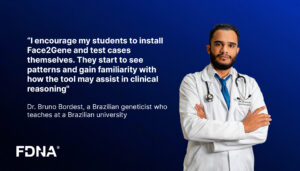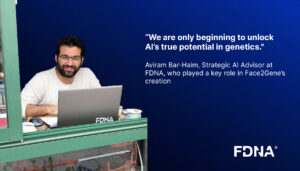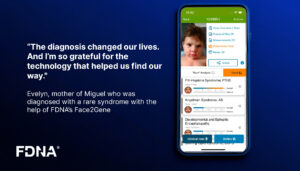January 8, 2019
According to the paper, the team trained Face2Gene’s deep-learning algorithm to identify rare genetic disorders by first feeding it more than 17,000 images of people diagnosed with one of 216 genetic syndromes. From that data, it learned to look for distinctive facial features associated with specific disorders.
When the researchers tested the app on 502 images it hadn’t seen before, Face2Gene provided the correct diagnosis roughly 65 percent of the time. When given the option of providing 10 possible diagnoses, the correct one made Face2Gene’s list 91 percent of the time.”
The article discusses how Face2Gene, an AI platform developed by FDNA, revolutionizes the expedited diagnosis of rare diseases by analyzing facial shapes. Using advanced algorithms, Face2Gene examines photos of patients’ faces to identify characteristic features associated with various genetic disorders. This technology leverages a vast database of facial images to detect subtle phenotypic patterns that are often missed by traditional diagnostic methods. By providing quicker and more accurate diagnoses, Face2Gene significantly improves early intervention and treatment options for individuals with rare diseases. The article showcases the potential of AI in transforming genetic disorder diagnostics through innovative facial analysis.


